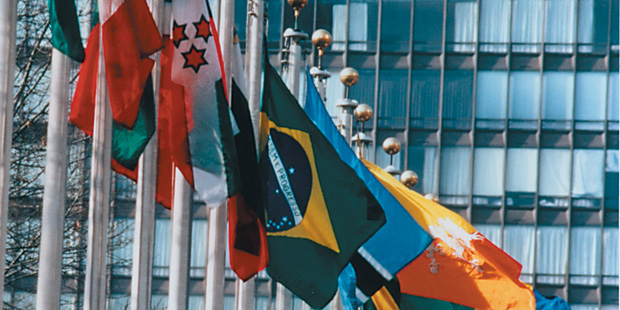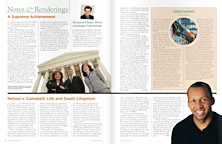Ending Executions
Printer Friendly VersionCall him the international law version of a volunteer firefighter. NYU School of Law professor Philip Alston has a new part-time gig this year: heading off executions before they happen.
As the newly appointed United Nations Commission on Human Rights Special Rapporteur on extrajudicial, summary, or arbitrary executions, Alston will both investigate human rights violations and attempt to head off imminent killings at the pass.
“The objective is to reduce the number of executions taking place,” says Alston, 54, who also serves as faculty director of the Center for Human Rights and Global Justice at the NYU School of Law. “This particular mandate,” he adds, “is very crisis-driven.”
Alston, a native of Melbourne, Australia, was appointed to the three-year Special Rapporteur position by Mike Smith, Chairman of the U.N. Commission on Human Rights. The job, which is unpaid, involves examining and reporting on a broad variety of human rights violations, ranging from genocide to paramilitary executions to deaths of prisoners to so-called honor killings (involving men who kill female relatives for having scandalized their families).
In some situations, the Special Rapporteur also scrutinizes the imposition of the death penalty. For example, the Special Rapporteur has complained about executing defendants for crimes committed as juveniles—which the U.N. considers a human rights offense.
Of course, Alston’s leverage—much like the United Nations’—is limited to political pressure. “The position carries no formal power other than to try to embarrass the government, or to present some international finding that what’s going on is unacceptable,” he says. Still, he hopes to derail imminent killings. For example, the office frequently learns that someone has been targeted for execution— perhaps by an unscrupulous business executive— and that the victim’s government intends to turn a blind eye. In these situations, Alston can attempt an intervention, usually by contacting officials from the other country, letting them know that he’s aware of a death threat, and at least tacitly threatening them with embarrassment. Such tactics have prevented executions in the past, says Alston.
Long before this appointment, Alston was well known for his extensive work for international human rights. “He’s an excellent choice,” says Michael Posner, executive director of Human Rights First, a New York–based advocacy group. “He’s been a leading figure in the human rights movement for a long time,” adds Posner, who has known Alston since the 1970s. “He combines academic excellence and scholarship with the real world of activism.”

